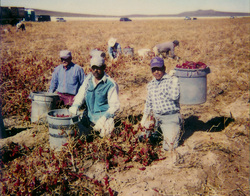A heart-rending novel by a former U.S. Border Patrol agent that explores how Mexican migrant workers are willing to endanger their lives for the prospect of better ones in America.
After legal Mexican migrant labor is discontinued in 1965, Miguel’s first illegal entry into the United States terrifies him. A kindly farmer takes him in, but his Mexican-American farmhand, Ohscar, is so desperate to maintain his own family’s newfound financial stability that he reports Miguel’s presence to the Border Patrol, with disastrous consequences. Meanwhile, Ohscar’s teenage son Javier has few social or education options. In an act of rebellion, he agrees to be the driver for the moronic Chuy, a “coyote” who smuggles undocumented immigrants across the border and who foolishly wants to branch out into drugs. The lives of these three men and their families intersect for the next three decades as they experience successes and frequent misfortunes. They’re complex characters who occasionally do wrong things, but they all realize their errors or pay the price for them (with the exception of the irredeemably evil Chuy). Harpold’s sympathetic account touches on union organizing and Cesar Chavez, but more extensively explicates the naiveté, vulnerability and desperation of workers and the exploitation they still experience despite myriad changes in policy and law—not just from employers, but from “coyotes” as well. Harpold, a retired U.S. Border Patrol employee, interestingly depicts agents as vindictive and officious. If the novel has a flaw, however, it’s that it portrays some of its Mexican characters as almost childlike in their naiveté. Overall, this sad but realistic tale challenges its readers to examine the stereotypes of migrant workers and undocumented immigrants and the ultimate costs of cheap labor.
A debut novel about a timely issue elucidated with an insider’s understanding and sensitivity.
After legal Mexican migrant labor is discontinued in 1965, Miguel’s first illegal entry into the United States terrifies him. A kindly farmer takes him in, but his Mexican-American farmhand, Ohscar, is so desperate to maintain his own family’s newfound financial stability that he reports Miguel’s presence to the Border Patrol, with disastrous consequences. Meanwhile, Ohscar’s teenage son Javier has few social or education options. In an act of rebellion, he agrees to be the driver for the moronic Chuy, a “coyote” who smuggles undocumented immigrants across the border and who foolishly wants to branch out into drugs. The lives of these three men and their families intersect for the next three decades as they experience successes and frequent misfortunes. They’re complex characters who occasionally do wrong things, but they all realize their errors or pay the price for them (with the exception of the irredeemably evil Chuy). Harpold’s sympathetic account touches on union organizing and Cesar Chavez, but more extensively explicates the naiveté, vulnerability and desperation of workers and the exploitation they still experience despite myriad changes in policy and law—not just from employers, but from “coyotes” as well. Harpold, a retired U.S. Border Patrol employee, interestingly depicts agents as vindictive and officious. If the novel has a flaw, however, it’s that it portrays some of its Mexican characters as almost childlike in their naiveté. Overall, this sad but realistic tale challenges its readers to examine the stereotypes of migrant workers and undocumented immigrants and the ultimate costs of cheap labor.
A debut novel about a timely issue elucidated with an insider’s understanding and sensitivity.

 RSS Feed
RSS Feed
